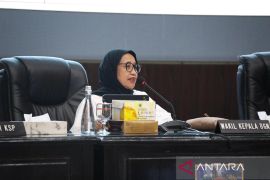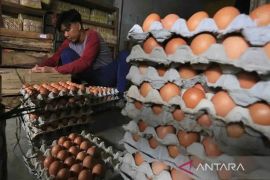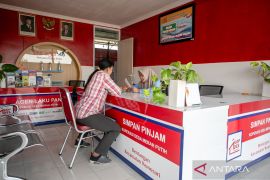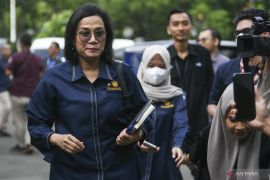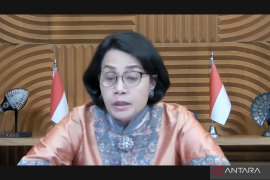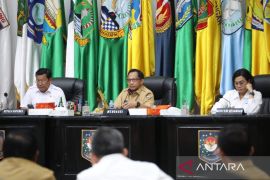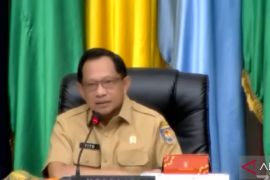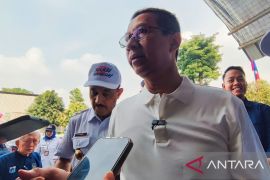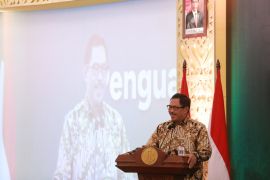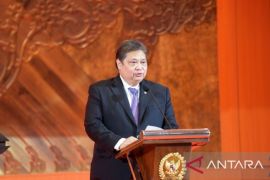According to Central Agency of Statistics (BPS) data, the inflation rate in 2010 reached 6.96 percent, exceeding the government`s target set at 5.3 percent.
"This problem will clearly affect low-income people who can hardly make both ends meet," House Speaker Marzuki Alie said on Monday.
Therefore, the House of Representatives (DPR) had reminded the government that the heaviest challenge it was facing in 2011 would be keeping inflation under control. He said the BPS data early this month indicated that the 6.96 percent inflation rate had far exceeded the government`s target of 5.3 percent for 2010.
"The increase in the prices of basic necessaries such as food and agricultural commodities is quite saddening," the House Speaker said.
The people`s purchasing power and the quality of their life will decline because they are not able to buy basic necessities. What is more saddening is the fact that inflation could widen social gaps in society.
In this regard, the House Speaker urged the government and Bank Indonesia (BI/the central bank), to intensively manage the causes of inflation.
Addressing a working meeting of governors at the Jakarta Convention Center on Monday, President Susilo Bambang Yudhoyono said the inflation rate in 2011 was expected to remain around 5.3 percent.
The head of state also said that inflation, increases in world food and energy prices would still constitute the main problem in 2011 and have an adverse impact on poverty and unemployment, if not addressed effectively.
Thus, the government must achieve its economic growth target. "We want economic growth to reach 6.4 percent and inflation 5.3 percent. This is the assumed and target figure," the president said.
He said 5.3 percent was the inflation rate assumed in the government`s 2011 work plan. Besides that, unemployment was set at 7 percent and the poverty rate at 11.5 percent to 12.5 percent.
The targets, the president said, are to be achieved with a state budget for 2011 amounting to Rp1,229.6 trillion which represented an increase of 9.2 percent from the 2010 state budget.
According to the BPS, inflation in the January - December 2010 period stood at 6.96 percent with the highest point in December reaching 0.92 percent. BPS head Rusman Heriawan, said the biggest contributors to inflation in December were raw food reaching 3.5 percent, finished food 1.23 percent and housing, water, electricity 1.01 percent.
Overall, he said, the inflation in 2010 was affected by rice price which contributed 1.29 percent, electricity tariff 0.36 percent, red chili 0.32 percent, gold ornament 0.27 percent and red union 0.25 percent. Of the 66 cities in Indonesia, 65 contributed to the inflation, while one contributed deflation, namely Sorong.
However, Rusman Heriawan said Indonesia`s economy in 2011 could grow over the government`s target of 6.4 percent. On the sidelines of President Susilo Bambang Yudhoyono`s working meeting with heads of regional government at the Jakarta Convention Center, Rusman Heriawan said that Indonesia`s economic growth in 2011 could be close to 7 percent.
He said that if there is an extraordinary event, it could be close to seven percent. "I want to say it will be above the 6.4 percent target. If there is an extraordinary event, the economic growth could approach the 7 percent figure," he said.
Rusman is optimistic that higher economic growth could be achieved because the world economy is recovering after the 2008 - 2009 crisis. "If other countries experience a growth there would be an impact that would encourage our economy. We should not lose the opportunity amid the world economic recovery," he said.
Earlier, Vice President Boediono said that the economic growth target set by the government at 6.4 percent in 2011 was too low. According to the vice president, it was not impossible that the Indonesian economic growth would reach seven or eight percent in 2011.
The key to achieving the prediction, the vice president said, is using energy well, including social energy, and reinforcing the electricity, oil and gas sectors.
"Extraordinary social energy has brought us independence (we fought only) with sharpen bamboos. It was invisible energy. Our asset is to find better potentials and seven to eight percent year on year is something that is not impossible to achieve," he said.
To boost economic growth, state budget allocation should be used maximally. Yet according to President Yudhoyono, the absorption of the state budget is not yet maximal so that growth could not yet be boosted optimally.
After all, the 2011 state budget is still under great subsidy pressures. The state budget problem is one of several challenges that the government had to face in 2011, the head of state said.
"Ahead, subsidy must be directed to the right target. Groups of economically able people should not enjoy subsidy that reduces our expenditure," the president said.
(T.A014/HAJM/S012/P003)
Reporter: Andi Abdussalam
Editor: Priyambodo RH
Copyright © ANTARA 2011
